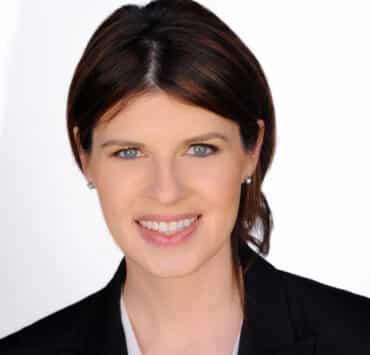|
Getting your Trinity Audio player ready...
|
Whenever Karen Morao met in-house attorneys, she was always impressed. She admired how well-rounded they were, and how having a one-client focus helped them hone their ability to spot key issues with precision and focus.
“It just struck me how clearly they could see things, the way they could speak to the intersection of law and business,” she remembers.
So, in 2015, Morao made the career-changing decision to move from private practice—where she handled commercial litigation, including international arbitration work conducted entirely in Spanish—to an in-house position at Hyundai Motor America. The transition was an opportunity to grow and challenge herself as an attorney, she explains. “It’s such a unique experience in how it can further hone your skills and abilities as a lawyer, as a communicator, as a collaborator,” she adds. “It just really opens up your skill set.”
At Hyundai, she began by handling nationwide consumer litigation. Then, after a handful of years, she started advising on the company’s emissions warranties. Adding expertise on these consumer-facing warranties to her knowledge base expanded the scope of her role at the company and led to her work on environmental regulations. In her current role as senior counsel of regulatory and litigation, she facilitates and manages collaboration between the different groups that shape Hyundai’s electrified future.
“Having the confidence to say ‘no’ if you’ve got too much on your plate is the same as having the confidence to say ‘yes’ to something outside your comfort zone.”
Karen Morao
“We’re focused on collaboration across many different business units and put a high value on the input from stakeholders,” she says, adding that the open communication benefits them all. “Across the company, even overseas, there’s a real sense that we’re all working together towards the same goal.”
Her calendar is full of meetings with departments across the organization, with R&D, product planning, mobility strategy, government affairs and more. Encouraging teamwork helps give the workplace additional momentum and contributes to a start-up feel, she adds, pointing to a working group she’s in that focuses on green vehicles. “You definitely want to avoid silos when you’re as big a company as Hyundai,” the attorney says.
Morao, who attended the Edmund A. Walsh School of Foreign Service at Georgetown University, took an interest in law after she worked as a receptionist at a startup law firm for a part-time summer job.
“I was answering calls and filing paperwork, but I was interested in what they were doing, and the more questions I asked, the more they started to include me in the substantive parts of their jobs,” she says. “They took the opportunity to teach me, and I ended up falling in love with the job. The skills they were utilizing really spoke to me.” She went on to work as a paralegal, then applied to law school.
“Talk to that partner or executive. Those are the little steps you can take that may open doors for you in ways you didn’t expect.”
Karen Morao
She attended Georgetown Law and continued working for the firm before relocating to California, where she spent the better part of the next decade at Dorsey & Whitney. The international arbitration work she did there helped inform how she interacts in cross-country relationships and business transactions. “I gained a deeper understanding of the law at an international level, how you need to conduct yourself given cultural differences, and how you can learn from those differences,” she explains.
Additionally, being a litigator taught her to be persuasive and quick on her feet. “In litigation, you’re always having to convince someone of something, and constantly engaging in quick thinking and being persuasive in your communications,” Morao observes. “I think those skills translate very well into my current role.”
The attorney says she’s been well-served by advice she was given as a first-year associate: don’t be afraid to say no. “When you’re a first-year associate, that’s a hard thing to understand and do because you’re so new—you’re working on billable hours, you’re working at the discretion of partners who are so intimidating,” she says. “But,” she adds, “having the confidence to say ‘no’ if you’ve got too much on your plate is the same as having the confidence to say ‘yes’ to something outside your comfort zone.”
Which leads to her second piece of advice: not to be afraid to seize opportunities when they arise, no matter how small. “Talk to that partner or executive,” she recommends. “Those are the little steps you can take that may open doors for you in ways you didn’t expect.”


